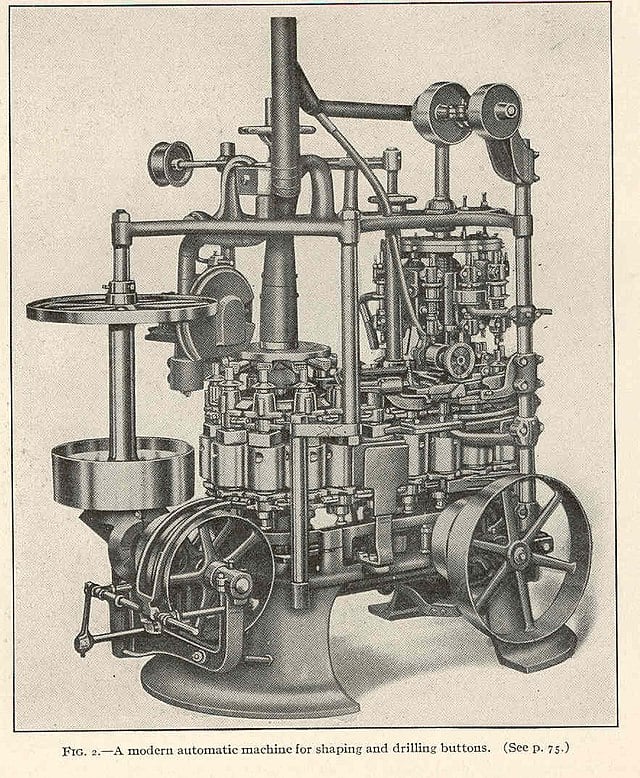The coffee price hikes have stemmed from lower production in important coffee growing regions, particularly in top grower Brazil, reducing the availability of beans.
That’s the closest I could find in the article as to a reason. It’d be nice to know if it was just a bad year or if this is going to be a permanent challenge going forward due to climate change or some other factors.
Coffee is quite sensitive to environmental factors and only grows in certain specific regions as a result. Those factors are being upended by climate change. Coffee is going to very rapidly become a luxury product.
Billionaires don’t care. Twenty dollars or two dollars for a cup is effectively the same price to them; insignificant. It’s the rest of us that get fucked.
Except we are nowhere near a situation like that. Articles like this don’t tell the actual prices because they are so small people might start questioning why they pay so much for coffee.
The poll had a median forecast for arabica prices at the end of 2025 of $2.95 per pound, a drop of 30% from Wednesday’s close and a loss of 6% from end-2024.
$3 per pound - $6 per kilo. Or to put it in another way, 4.8 cents per shot of espresso, two of which go in a 16 oz Starbucks latte that costs you $5.75, which would be enough money to buy 120 shots worth of bulk arabica.
If that goes up by 7% or 70% or 700%, the cost of that latte should hardly change.
Logistics cost money
Shucking and processing the beans costs money
Roasting the beans costs money
You’re forgetting the most obvious factor: charge the most people are willing to pay.
Exactly. And all of those stay the exact same price even if raw coffee price increases, meaning the price of a ready made cup of coffee hardly changes as the actual raw bulk coffee is only 1/60th of the total price of a starbucks latte.
How about this explanation:
There is a reduced supply of coffee beans. Let’s say 30%. This requires that 30% of customers have to be priced out of the market.
If the coffee shop owners only increase the price by several cents then the demand stays the same. They have to fight for coffee beans which drives up their costs step by step.
However, if they increase the price in advance, and far more than necessary right from the start, then the reduced demand matches the available supply and the value of the coffee beans roughly remains the same which allows them to profit from most of the price hike.
There is a reduced supply of coffee beans. Let’s say 30%. This requires that 30% of customers have to be priced out of the market.
this is fiction writing. you are literally making that up
What do you mean? There are globally less coffee beans available. Or do you mean the 30%? That’s just an arbitrary number, as I tried to make clear by writing “Let’s say …”.
Those factors are being upended by climate change.
How, exactly?
It’s my understanding that coffee does best in warm climates. Shouldn’t global warming, at the very least, change where we grow coffee as opposed to just removing the areas we can grow it in?
Others have given the detailed answer, but the really simple one is this; “How many jungle plants grow well in deserts?” If it was simply a matter of “hot = good”, surely the answer would be “all of them.”
There are specific conditions that every plant requires to grow well. Some plants are more tolerant of disruption to those conditions, some less so. Climate change affects all of those conditions. Increased global temperatures can make some places hotter, some places colder, some places wetter, some places dryer, and have all sorts of other knock on effects too.
It’s not quite as simple as that and there are other growing conditions that are required. If we take Arabica, it requires a very small window temperature window, sunlight but not so much it scorches the plant, a particular pH of soil, and consistent rainfall.
Climate change brings unpredictability to growing conditions so even if you had to move where you grow it, it won’t necessarily mean it’ll grow well. Plus different locations can bring on new diseases for the (coffee has its fair share of diseases to combat with) and so new varitals would need to be selected which is no simple task.
As the article points out, coffee is notorious for being fussy when growing it.
It’s also due to very bad weather/floods in the second largest producer, Vietnam.
And since extreme weather events are increasing in intensity and frequency, it’s not going to get better (as a trend at least).
Coffee can be a pain to grow. As someone else mentioned, you have to have the right environment (rain, sunshine, soil, etc).
Adding to this is that it’s easier to grow other things that are in just as much demand. Vietnam has switched to growing durian fruit — less fussy and makes them just as much money.
Coffee is also quite carbon intensive.
From what I’ve heard this is largely due to bad weather due to climate change, as I understand it, we should not expect coffee prices to ever go back to where they were.
For the past 4-5 years it seems prices have only gone up here. It’s more than triple now of what it used to be before Covid, and that’s only 5 years!But I’m not an expert, this is just what I’ve been seeing as a heavy coffee drinker in the supermarket, and what I’ve gathered from short news tid-bits.
NNOOOOOOOO. Don’t grind the market before you are ready to drink it! It’ll lose all the freshness!!
Fucking bummer. Everyone around me will crash and burn, and us non-coffee drinkers will rule the world!
Lol, it only takes a few days to no longer have withdraw effects of caffeine. Some Ibuprofen and Tylenol will take care of the headache in the transition.
A lot of people feel it for a lot longer than that, check out r/caffeinefree. For some it can take 3-6 months to stop feeling some effects
First eggs, now coffee?
Man, my breakfast is getting real slim nowadays.
It’s like those people saying quit your every day coffee/lunch/cigarette and you will afford a house.
Finally, housing issues solved
Time to start the french special: bred, butter, jam and a cigarette.
With these tobacco prices??
It’s $46USD for a 25 pack of Winnie Blues in Australia right now.
Holy shit! At that point, you could probably turn a profit growing shitty tobacco in a greenhouse and selling it black market.
The black market is bigger than the legitimate market. It’s out of control.
We even effectively banned vapes. They can only be legally dispensed by a pharmacy, and the pharmacists want nothing to do with it.
Looking forward to price hikes far beyond the actual cost to middlemen. The eggification of another good.
Finally! I’m so glad people are starting to realize just how much we’re getting fucked.
“Product costs 5% more to bring to market? Better increase the price by 20%!”
Already happened to chocolate. Raw cocoa is currently around 10% more expensive than it was at the same time last year - but chocolate products at retailers has shot up 40% or more. Including brands where cocoa isn’t the dominant component ingredient like milk chocolate.
Yet businesses like Lindt are celebrating a 7.8% increase in sales… Make it make sense to me cos I buy far less now. Who are the people who see these increasing prices and buy more 🤡
Source data: https://tradingeconomics.com/commodity/cocoa
Decades ago, in undergrad, I wrote a paper on recessions and the effects on everyday items. Oddly enough, the less money people have, the more likely that they will spend a tiny amount on luxury goods like chocolates. You add up all those people who buy small boxes of chocolates when they normally wouldn’t, and you’ve got your uptick in sales.
Caffeine tablets it is then… Oh wait I bet those are going to be affected too. Fun times
Cocaine it is then.
I picked the wrong week to quit methamphetamines.
Cut out the middle man. I just started roasting raw beans. Costs less than half as much as I was paying before and tastes better than I’ve ever had before.
You’ve only cut out the roaster, which does nothing to solve your supply issues.
Global warming makes coffee harder to cultivate, that restricts the supply, hence the price hikes. I guess coffee is going to be a luxury item in the future.
While the world is focused on its own problems, far right populism, and what not, we are oversleeping a great opportunity to rein in global warming. With douchebags like Trump at the helm, the crisis is getting worse and worse. I guess the kids of our kids will read about this time in their history books and wonder how stupid and egocentric we were back then.
Time for everyone here to research: Chickory. Alternative to coffee and you can grow it at home.







